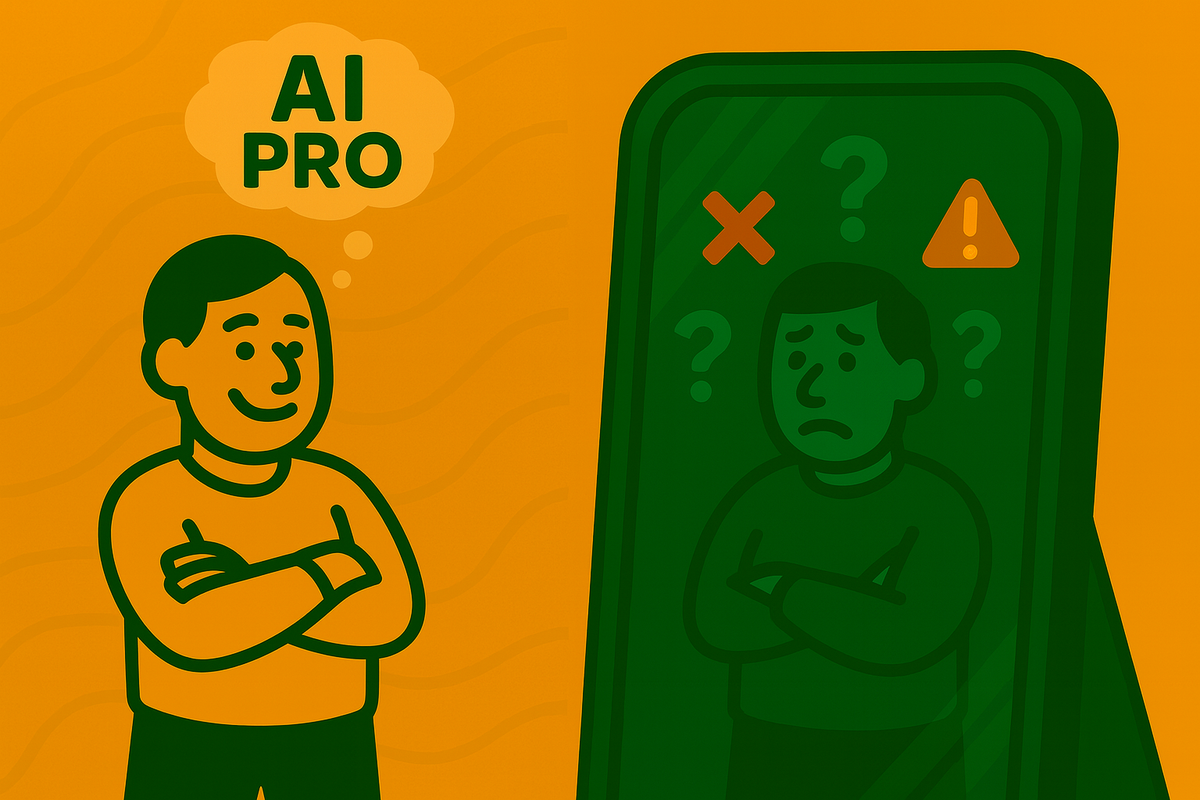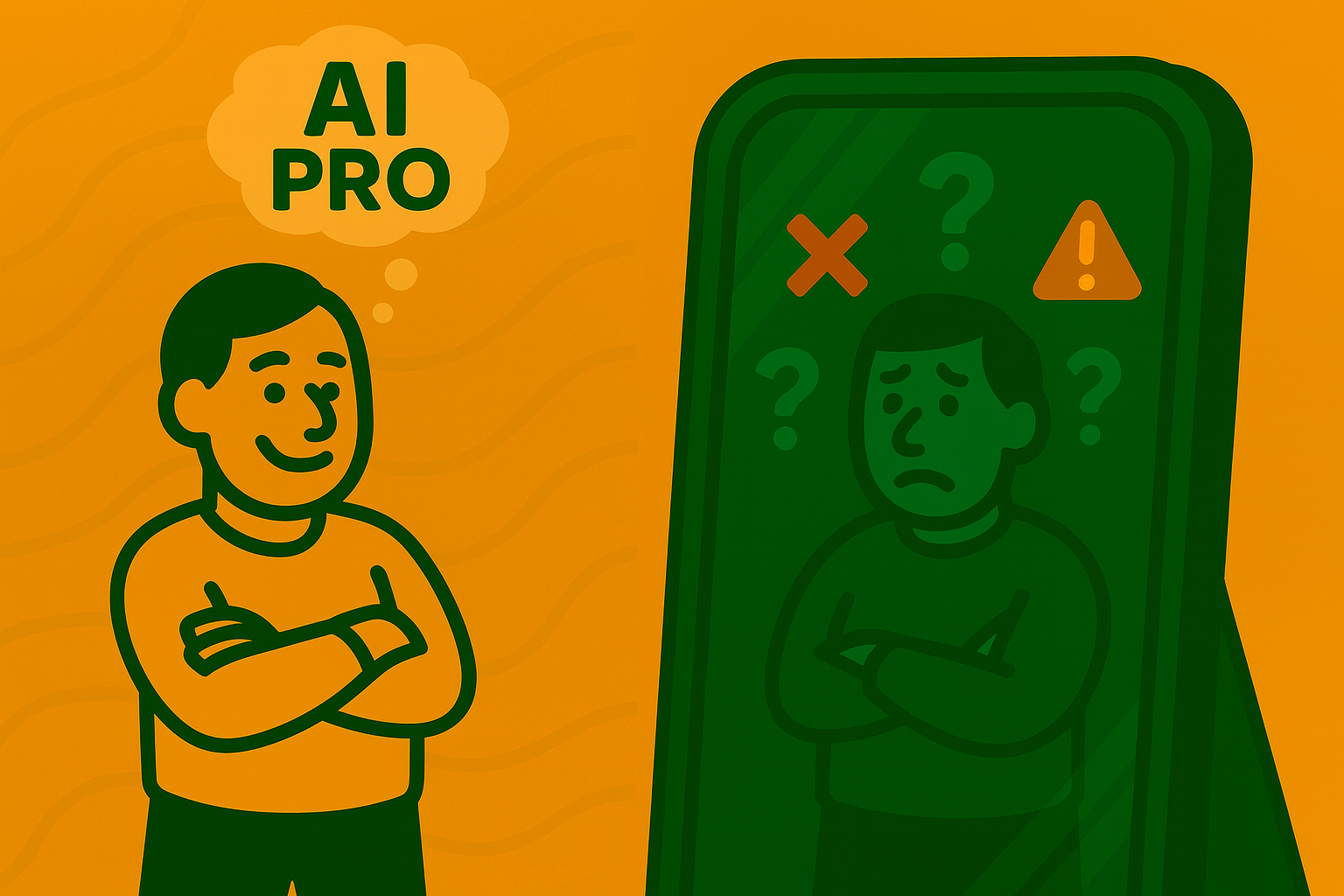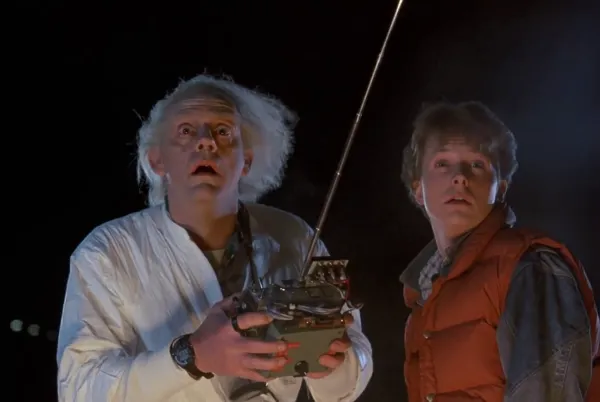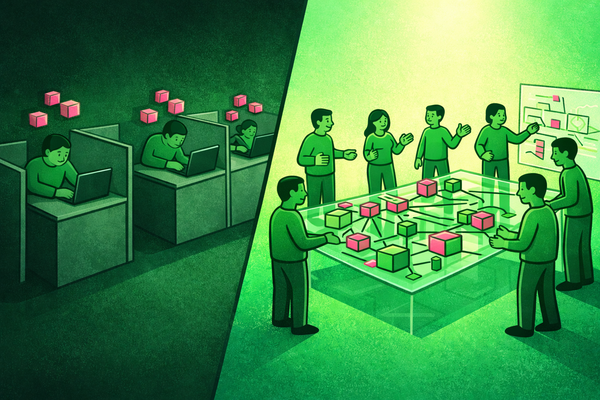Using AI Daily Doesn't Mean You're Good at It
Check yourself: 5 ways to tell if you're competent or falsely confident

Let's get real.
Just because you use AI every day doesn't mean you're good at it.
The hard truth?
Most people using AI are using it poorly.
They're sending workslop.
Clogging inboxes, wasting time, and putting their reputation on the line.
Using AI is the bare minimum today.
Everyone's doing it.
Check yourself: Are you using it like someone who's competent or are you falsely confident?
There's a very real gap and it's growing as more people use AI.

Here's what separates the two in 2025:
1. They don't stop at the first result
They know that every word in their prompt shapes the result, so they treat prompting like a skill worth developing.
New to iteration? Start here: Build Your Testing Tolerance
2. They protect their voice and perspective
They also know when NOT to use AI.
They filter results so they're not losing themselves to workslop that forces others to be the filter.
AI taking over? Start here: How To Stop Sending Workslop
3. They've studied what good looks like
They find good prompts from others and adapt them to their situation. They study the mechanics of people excelling with AI, not just prompts but features and results too.
They can spot the difference between sharp output and garbage because they've trained their eye.
Don't know good? Start here: 10 Prompting Tactics Experts Use
4. They're curious and lean in early
They're not waiting for an assignment or a tutorial. They're figuring it out on their own.
Playing it safe? Start here: Become an AI Super User
5. They build systems and think big
They know when to invest the upfront effort to set up a system that pays off long-term.
They're not treating AI like a one-off task machine. They're building infrastructure.
No strategy? Start here: Become Technical Enough to Lead
Are you coasting or growing?
How frequently you use AI doesn't equal skill.
Just like comfort doesn't mean competence.
If you're using AI the same way you were 6 months ago, you're not keeping up.
You're coasting on false confidence while others grow.
Ask yourself: Are you actually good at AI or do you just use it a lot?
Because in 2026, the difference will be obvious.
If you're realizing you've been coasting, good.
That's the first step.
Now go study a good prompt.
Iterate on one output until it's sharp.
Test a feature you've been ignoring.
Build one reusable process.
Start closing the gap.
Not a subscriber yet? Join here for weekly insights on AI, strategy, and the changing workplace.
Found this useful? Forward it to a teammate who's figuring out AI too.





